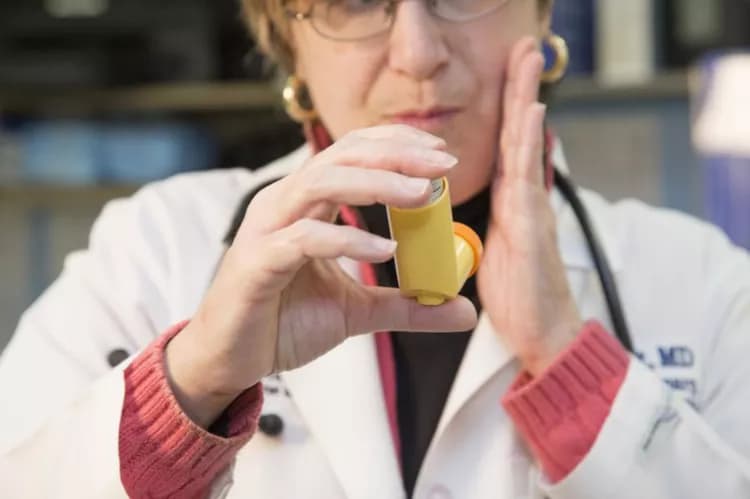
Rescue Inhaler Study: New Approach Increases Mastery Of Life-Saving Technique
A rescue inhaler can be a lifesaver during an asthma or COPD flareup, but using a rescue inhaler is complicated and misuse is common, putting patients' lives at risk. An education strategy, called teach-to-goal, may help patients use their inhalers properly during these critical times, according to research published online ahead of print in the American Thoracic Society journal Annals of the American Thoracic Society.
"From previous studies, we knew that the vast majority of inpatients -- 86 percent -- had trouble using their rescue inhalers," said lead author Valerie G. Press, MD, MPH, an assistant professor and hospitalist at the University of Chicago, noting proper inhaler use may prevent the need for hospitalization in the first place. "We also studied the teach-to-goal approach and found it a powerful way of educating patients in the hospital, but we didn't know if the effect would be long lasting."
In "Effectiveness of Interventions to Teach Metered-Dose and Diskus® Inhaler Technique: A Randomized Trial," Press and colleagues report on a study of 120 patients at two Chicago hospitals that compared the teach-to-goal approach to a more typical patient education encounter. Patient mastery of inhaler technique was assessed at the time of educational encounter and 30 and 90 days later.
Those assigned to the teach-to-goal arm learned how to use their metered-dose inhaler (MDI) through up to three cycles of demonstration and practice/testing. Those assigned to the brief instruction group were given instructions on inhaler use that they read aloud and a health care professional talked to them generally about their disease.
Researchers found:
- MDI misuse was significantly lower in the teach-to-goal group than the brief-instruction group immediately following education session (11 percent vs. 60 percent).
- Acute-care events within 30 days of inhaler education were significantly lower in the teach-to-goal group than the brief-instruction group (17 percent vs. 36 percent).
- Acute care events within 30 days among those with low health literacy were significantly lower in the teach-to-goal group than the brief instruction group (15 vs. 70 percent).
- Proper use of MDIs declined overtime in both the teach-to-goal group and the brief-instruction group. At 90 days, 48 percent of the teach-to-goal and 76 percent of the brief-instruction group did not use their inhaler properly.
The researchers also studied the same educational strategies for teaching patients the proper use of a Diskus® inhaler to the 38 patients in the larger study who used this devise to control their day-to-day asthma and COPD symptoms. Results were similar to the MDI results.
"Our study shows that there may be improved clinical outcomes to providing teach-to-goal inhaler education in the hospital, especially for patients with lower health literacy levels," Dr. Press said, "but it also shows clearly that ongoing instruction in inhaler technique is required after discharge for long-lasting skills retention and improved health outcomes."
The above post is reprinted from materials provided by American Thoracic Society. Note: Materials may be edited for content and length.
Disclaimer: DoveMed is not responsible for the adapted accuracy of news releases posted to DoveMed by contributing universities and institutions.
Related Articles
Test Your Knowledge
Asked by users
Related Centers
Related Specialties
Related Physicians
Related Procedures
Related Resources
Join DoveHubs
and connect with fellow professionals

0 Comments
Please log in to post a comment.